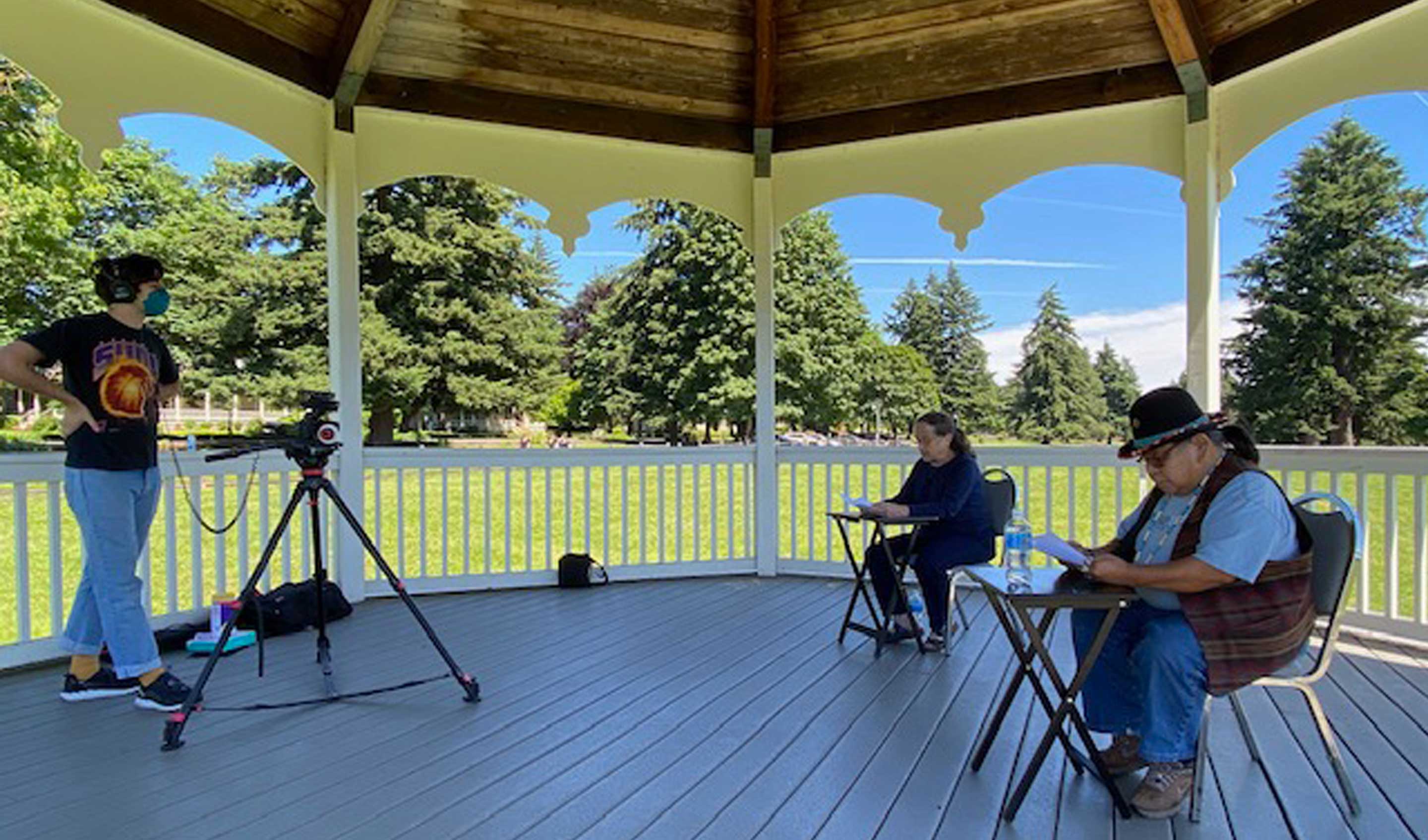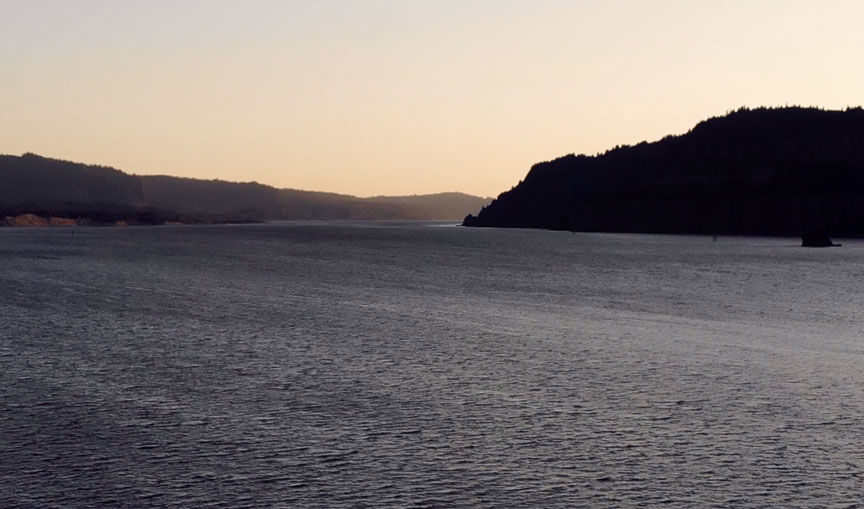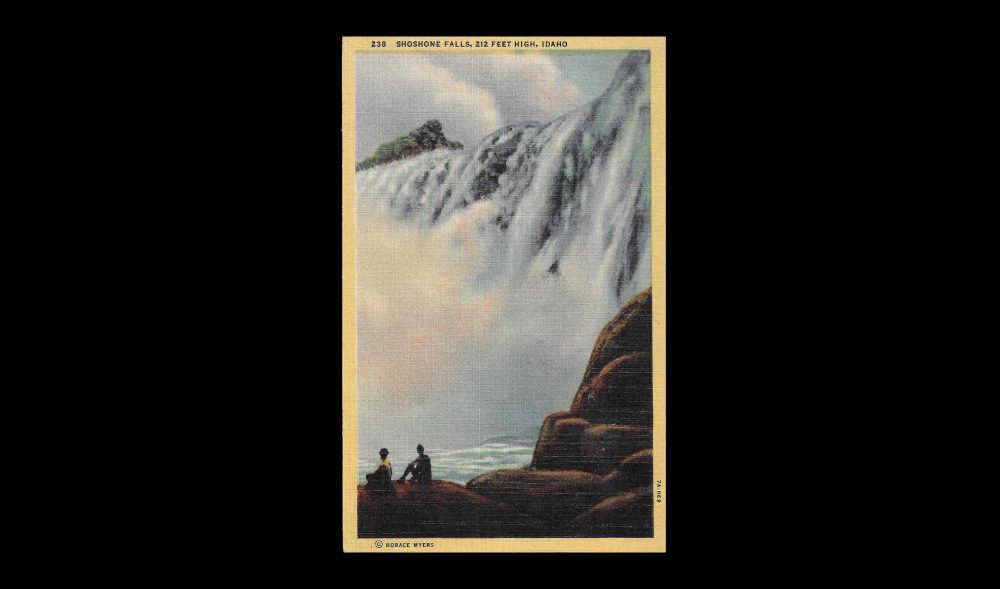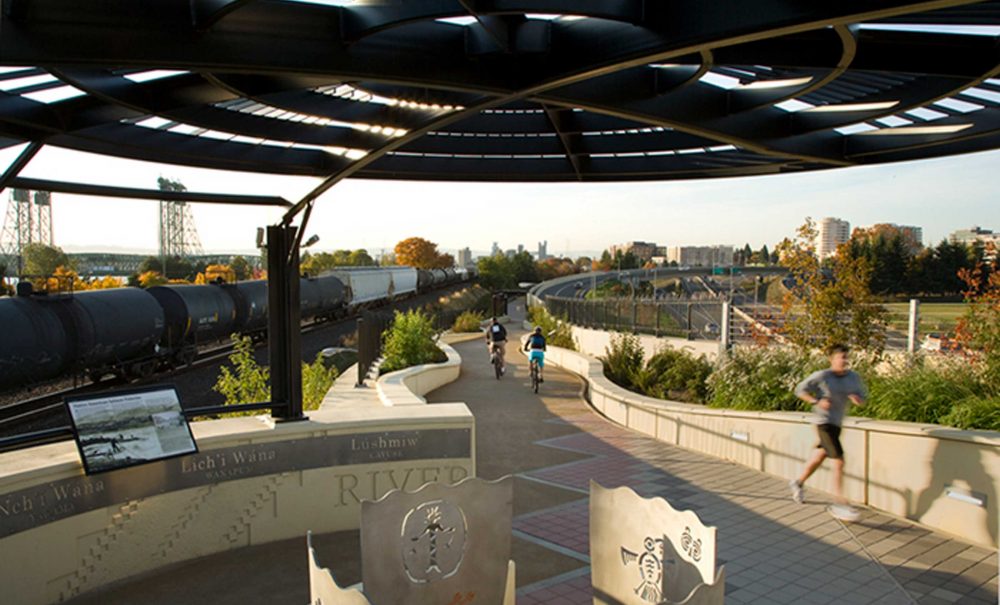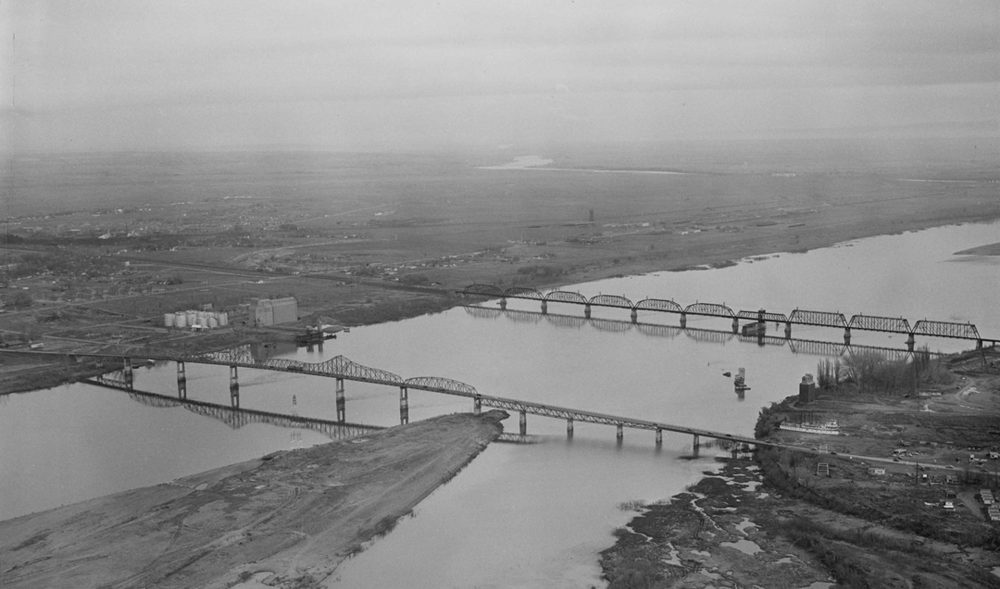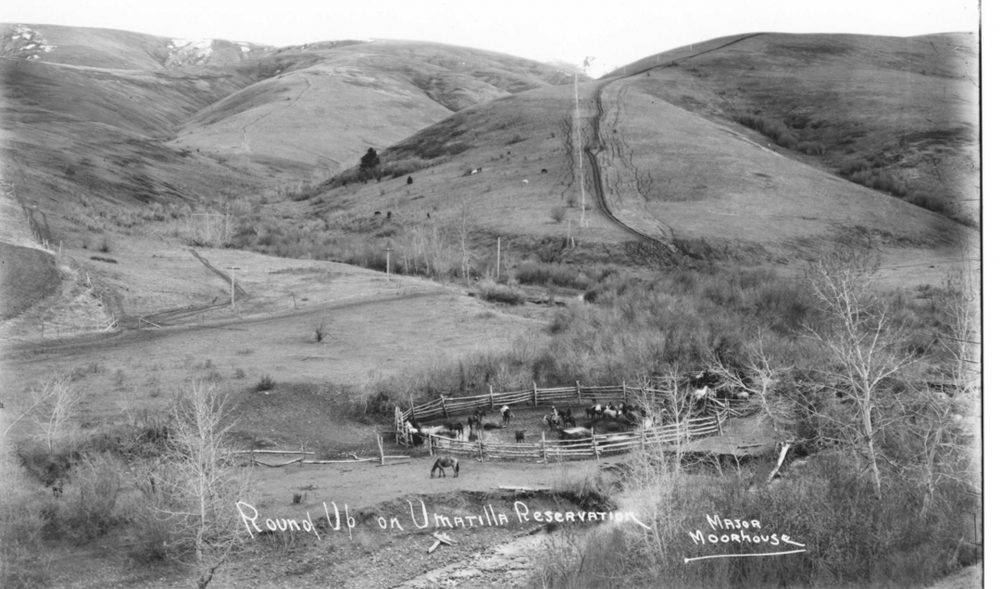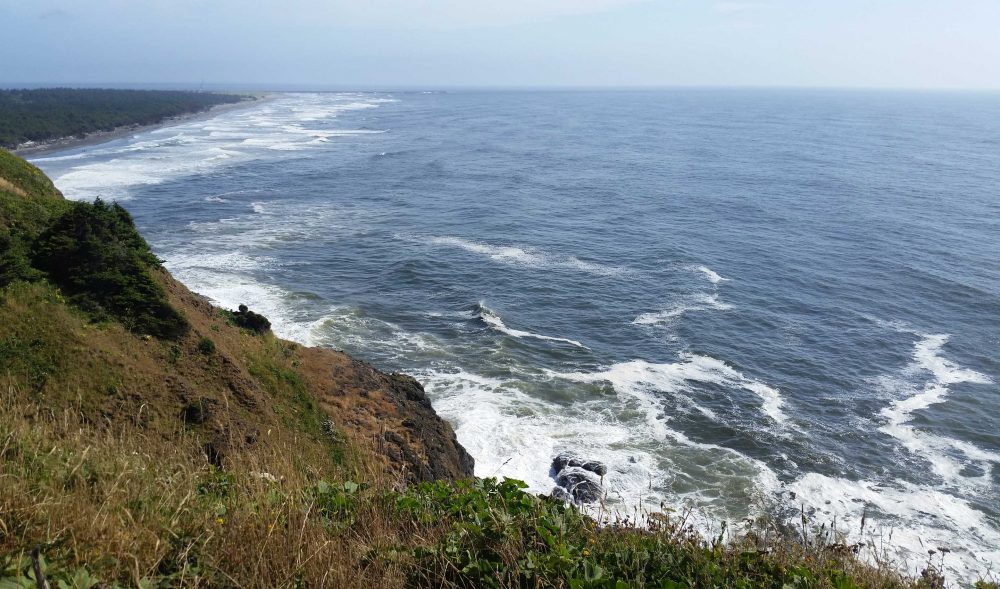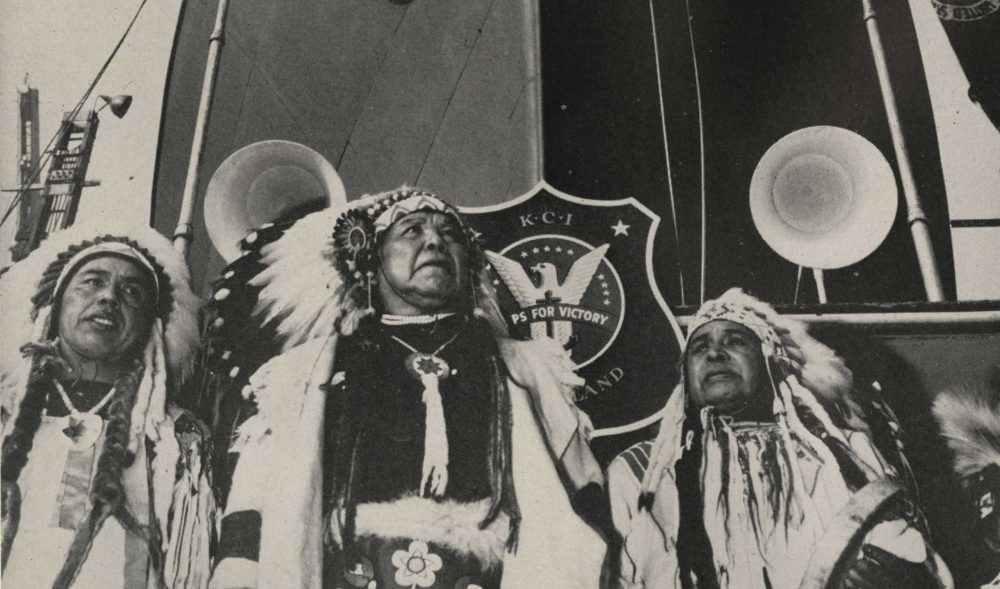Confluence Library
Two new episodes of the Confluence Story Gathering podcasts explore racism along the Columbia River in the 1950s. Parallel Lives is the two part story of Ed Edmo and Lani Roberts growing up in The Dalles, Oregon. Their juxtaposed stories give a full picture of rural Oregon and the parallel lives they led along the N’chi-Wana River.
Two new episodes of the Confluence Story Gathering podcasts explore racism along the Columbia River in the 1950s. Parallel Lives is the two part story of Ed Edmo and Lani Roberts growing up in The Dalles, Oregon. Their juxtaposed stories give a full picture of rural Oregon and the parallel lives they led along the N’chi-Wana River.
This Story Collection is based on a conversation between Native Storyteller Ed Edmo and Professor Lani Roberts, where they discussed their parallel childhoods growing up in The Dalles and the discrimination that Ed faced there.
Native American Elder, Storyteller, and Educator Ed Edmo, and former professor Lani Roberts speak about growing up in The Dalles during the 1950s. Although they grew up in the same area and are the same age, their lives were lived in parallel fashion because of the differences in their ethnic heritage. Their juxtaposed stories give a full picture of rural Oregon and the parallel lives they led along the N’chi-Wana River.
This vintage postcard of Shoshone Falls was found in an antique store. The art was done by Horace C. Myers, an Idaho photographer.
The Vancouver Land Bridge site was rich with biodiversity prior to settlers’ advancement. Seated on a floodplain near Mt. St Helens, it was home to savanna, hardwood forest, and prairie. Today it is home to Ft Vancouver.
The Sacajawea State Park area saw a lot of change between the surrender of Chief Joseph and the revelation of the Hanford nuclear operations only a century later: railroads, dams, and plutonium replaced trade and family.
The confluence of the Snake and Columbia Rivers was a major uniting force for tribes of the Columbia River basin. It became a major site for settlers later, as the waterways provided a convenient mode of transportation.
Orinthologist John Kirk Townsend provided valuable descriptions not only of the Columbia River’s bird populations but also of Cape Disappointment. A portion of a letter describing Cape Disappointment is reprinted here.
The World Wars brought a number of changes to the Vancouver-Portland area, including the introduction of women to the industrial labor force. Among those women were Native American women brought to work as welders.

